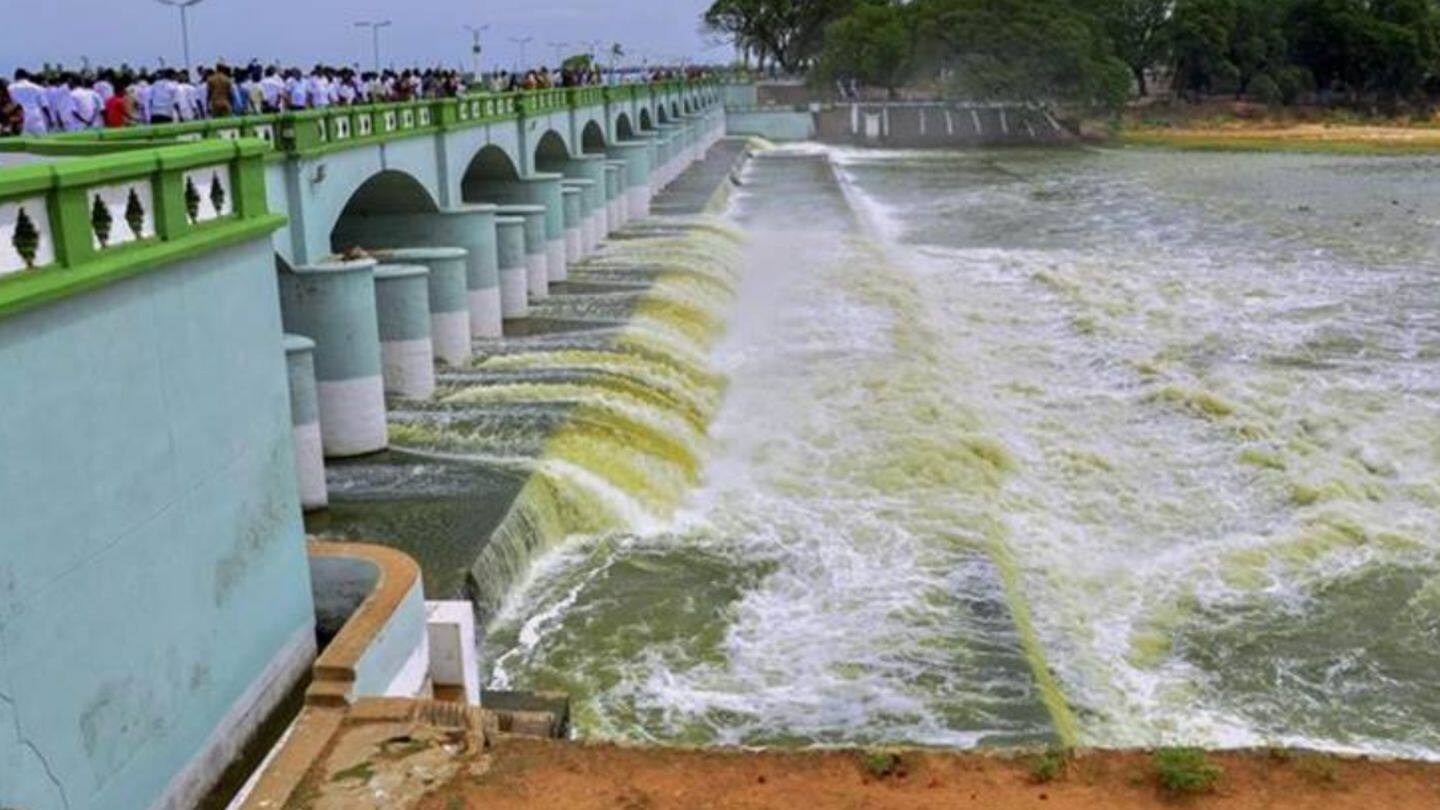
Citing Karnataka elections, Centre seeks more time for Cauvery Board
What's the story
In view of the May Assembly elections in Karnataka, the Central government is trying to buy time before constituting Cauvery Management Board. It has moved SC seeking an extension of three months before implementing the apex court's judgement. The TN government, however, filed a contempt petition against the Central government for "willfully disobeying" SC's orders. What is this 125 year old dispute? Here's more.
Background
What is the dispute about?
The 765-km long Cauvery River originates in Karnataka's Kodagu district and enters TN. Its tributaries also flow through Kerala and Puducherry. The dispute dates back to pre-independence, when in 1924, the Madras Presidency and Mysore state signed a water-sharing agreement under the British Raj. In 1974, the agreement lapsed and Karnataka claimed it restricted the state from developing farming activities along the Cauvery basin.
Intensification
Why did the dispute escalate?
Soon, Karnataka started building reservoirs to make up lost ground. But, on TN's insistence, in 1990, SC constituted the Cauvery Water Disputes Tribunal (CWDT). In 2007, the tribunal ruled that of the 740 thousand million cubic feet (TMC) available, 419 TMC was for TN, 270 TMC for Karnataka, 30 TMC for Kerala and 7 TMC for Puducherry. All states challenged this distribution in SC.
Verdict
What was the latest verdict?
This emotive issue has seen its share of violence in 1990-91 in Southern Karnataka and in 2016, in Bengaluru. In February'18, SC delivered its final order. It addressed TN's key complaint that Karnataka never released water on time. Now, it was obligated to release a monthly share of 177.25 TMC from the earlier 192 TMC. For Karnataka, an increased allocation allowed storage and drinking water.
Politics
What is the politics involved?
In Karnataka, Cauvery River is a symbol of pride and provides water for agricultural needs and drinking in cities like Bengaluru. The ruling Congress has also whipped up frenzy over the issue even as BJP has been trying to woo neighboring TN's AIADMK. In TN, it is a volatile issue as it has triggered high-profile protests with film stars staging hunger strikes.
Plea
Now, what is the Centre's plea to the SC?
BJP-led Centre filed an affidavit a day after the six-week deadline for implementing the verdict ended on Friday. It stated that a notification during the Assembly elections process would lead to "massive public outrage and vitiate elections." It added that the states involved have expressed contradicting views about the water-sharing "scheme." So, to avoid further litigation, it wants to discuss the scheme with states.
States view
How are all states placed on the issue?
TN, Puducherry and Kerala have said that Central government should compulsorily implement the SC's final decision by constituting the Board. Karnataka, however, feels that the SC has left the contents of the scheme to the Centre's discretion. It claims that sharing waters is the sole prerogative of the state under the Constitution's seventh schedule and so the Centre cannot force Karnataka to do so.
Significance
What does this imply?
By disrupting Parliament and filing a contempt petition, embattled TN government is trying all types of pressure tactics in the book to bring positive results for the state. Meanwhile, for Karnataka's Congress government, the verdict was a kind of "victory." However, any violence fanned, wouldn't bode well for the government before the Assembly elections, which is a straight fight between Congress and BJP.